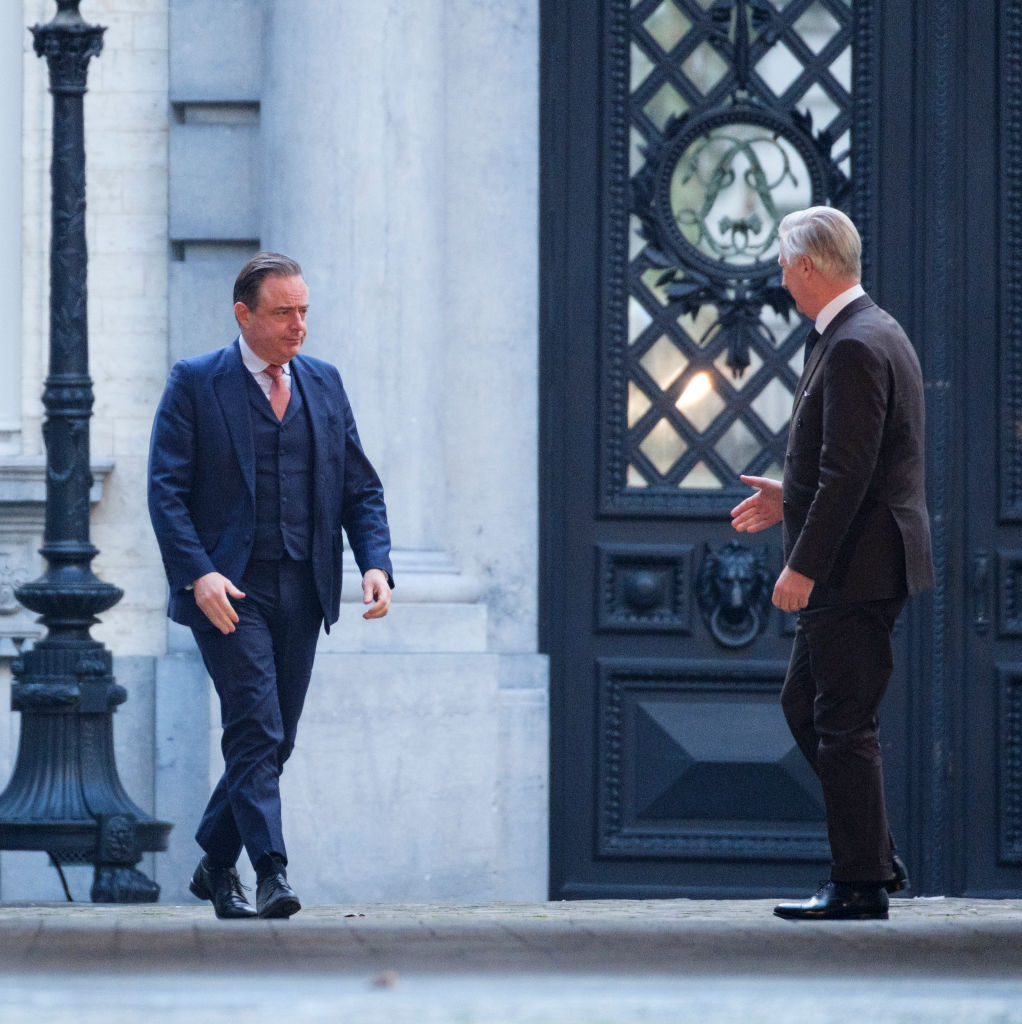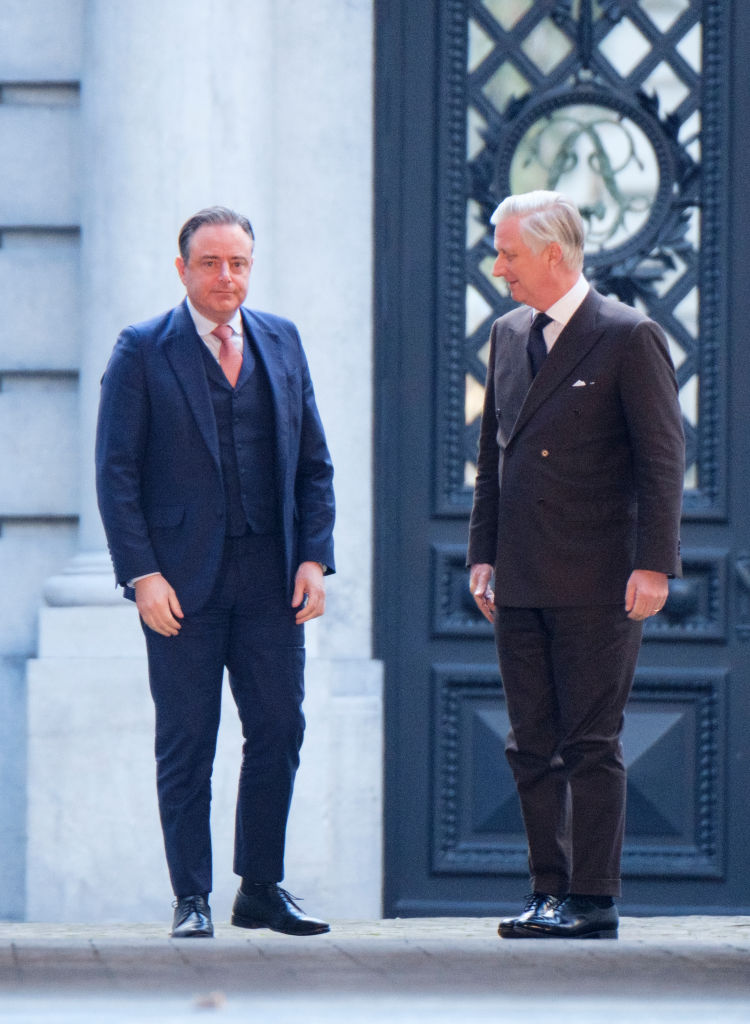Almost eight months after the national elections on June 9, Belgian parties agreed to form a coalition.
Given the country’s challenging budgetary situation, the primary focus is on socio-economic recovery, particularly through pension reform and the limitation of unemployment benefits.
For the first time ever, Belgium will be led by a separatist Flemish Nationalist, Bart De Wever.
He stressed that he is up for a tough job, with Belgium having one of the worst budgets in the Western world and already being one of the highest-taxed industrialised countries.
Belgium’s government debt-to-GDP ratio is expected to rise to 106.7 per cent of GDP by the end of 2025.
According to the International Monetary Fund (IMF) projections, Belgium’s government debt could reach 119.5 per cent of GDP by 2028, making it the EU country with the strongest debt increase between 2022 and 2028.
De Wever promised to “sanitize” the budget while also alleviating the total tax pressure, a “health treatment” for Belgium.
Despite consistently arguing that Belgium is inherently inefficient and often politically unjust due to its two regions with competing interests, De Wever has tied his political future to the challenge of proving the country can function.
Alea iacta est! ✌️ pic.twitter.com/aOZRYiZrPs
— Bart De Wever (@Bart_DeWever) January 31, 2025
The new prime minister had set a hard deadline on January 31, having said that negotiating further after such a long time would be useless. There was also a sense of urgency given the pressure from the EU and international markets to form a government and fix the budget.
To that aim, the new government promised to make some serious changes.
Most strikingly is the end of the indefinite unemployment benefits, limiting the (increased) amount to two years. The maximum amount will go to people who worked five years or more, but will decrease over time.
The restriction does not apply to individuals aged 55 and older.
Pensions will also be adjusted. “Without significant policy changes, the affordability of Belgian pensions is at serious risk,” the coalition agreement stated.
“There is a risk that Belgium could end up in a situation where it is no longer able to meet its pension obligations without substantial tax increases or drastic cuts elsewhere in the budget.”
People will get a higher pension if they choose to work longer and less if they stop working sooner.
Fewer “credited periods,” such as sick leave or maternity leave, will be included in pension calculations.
Government officials and teachers will see their pensions aligned with private sector workers, with fewer benefits, and the calculation of their pension will be based on the earnings over their full career, and not the last 10 years, when their wage is highest. Sick pension will disappear.
There will be a fiscal reform, aimed at lowering the cost of labour, and make working more appealing by ensuring low-wage earners get more.
Targeting a €500 difference, the new government plans to widen the income gap between workers and the unemployed. Net earning are set to improve.
However, despite efforts not to raise taxes, there will be an introduction of “a solidarity contribution on future realised capital gains from financial assets”, or capital gains tax, with deductibility of capital losses within the year, without transferability.
People who invest their savings in the economy will get tax benefits.
Migration will also be tackled, with a series of tougher requirements for migrants and asylum seekers. The government wants “a significant increase in return rates.”
Belgium will see if it can build or rent prisons abroad and will only organise asylum shelter in collective centres, making it less attractive.
There will be border checks if needed, a more intense fight against all forms of fraud, and admission requirements for family reunification will be tightened
Migrants will have a nationality exam, which includes a citizenship test and a language test, and are not entitled to social assistance until after five years.
There is an exception for recognized refugees. They will continue to receive automatic entitlement. However, they must follow an enhanced integration path. If they do not, their assistance will be reduced.
Other major changes in Belgium include the end of the nuclear phase-out, and building a new nuclear reactor (SMR). Citizens should also be able to have all their interactions with the government digitally.
Drivers will need to be more cautious as traffic rule enforcement becomes stricter, with a focus on phone use while driving, unlicensed driving, and drug or alcohol impairment.
The government also wants to replace the health message “alcohol abuse harms health” with “alcohol harms health.”
It will also be more strict against smoking overall, with an expanded smoking ban in certain places and calls the youth “vape hype” a serious concern.
“Vaping is marketed as a smoking cessation tool, yet evidence shows it can lead to smoking. Moreover, strong indications suggest it harms health—we cannot ignore this,” the coalition agreement states.
To reduce the appeal of e-cigarettes, the government plans to severely limit flavoured options and tighten enforcement of marketing bans targeting young people.
For the first time in years, Belgium will significantly invest more in its army, and have more soldiers, who will earn more and get better training and missions.
Young people will be able to volunteer in the army. The goal is to create a “flexible army built around a professional core, but substantially expandable with an operational, well-trained and available reserve.”
There will be additional fighter jets, smaller transport aircraft, additional armed drones, an operational helicopter fleet, a third frigate, and improved mine action.
Ammunition supply and other strategic stocks will be resupplied and Belgium will invest in aerial defence.
By 2029, Belgium will allocate 2 per cent of its GDP to the military, increasing to 2.5 per cent by 2034. In 2023, the country contributed just 1.1 per cent of its GDP—one of the lowest levels in the alliance—despite hosting NATO’s headquarters in Brussels.
Some other, more symbolic measures are cuts for politicians, who will get a limited retirement fee, and the Senate, an institution that has become obsolete over time, will disappear.
For Brussels, the most striking parts of the agreement are the intensified fight against crime, together with a merger of the six police zones, tackling longstanding policing inefficiencies in the Belgian capital.
A historic moment for conservatives in Europe! ??
?? Congratulations to Bart De Wever, the new Prime Minister of Belgium!
With Belgium joining ?? Italy & ?? Czechia, the ECR now has three leaders at the European Council—making us the second-largest political force alongside the…
— ECR Party (@ECRparty) February 1, 2025





